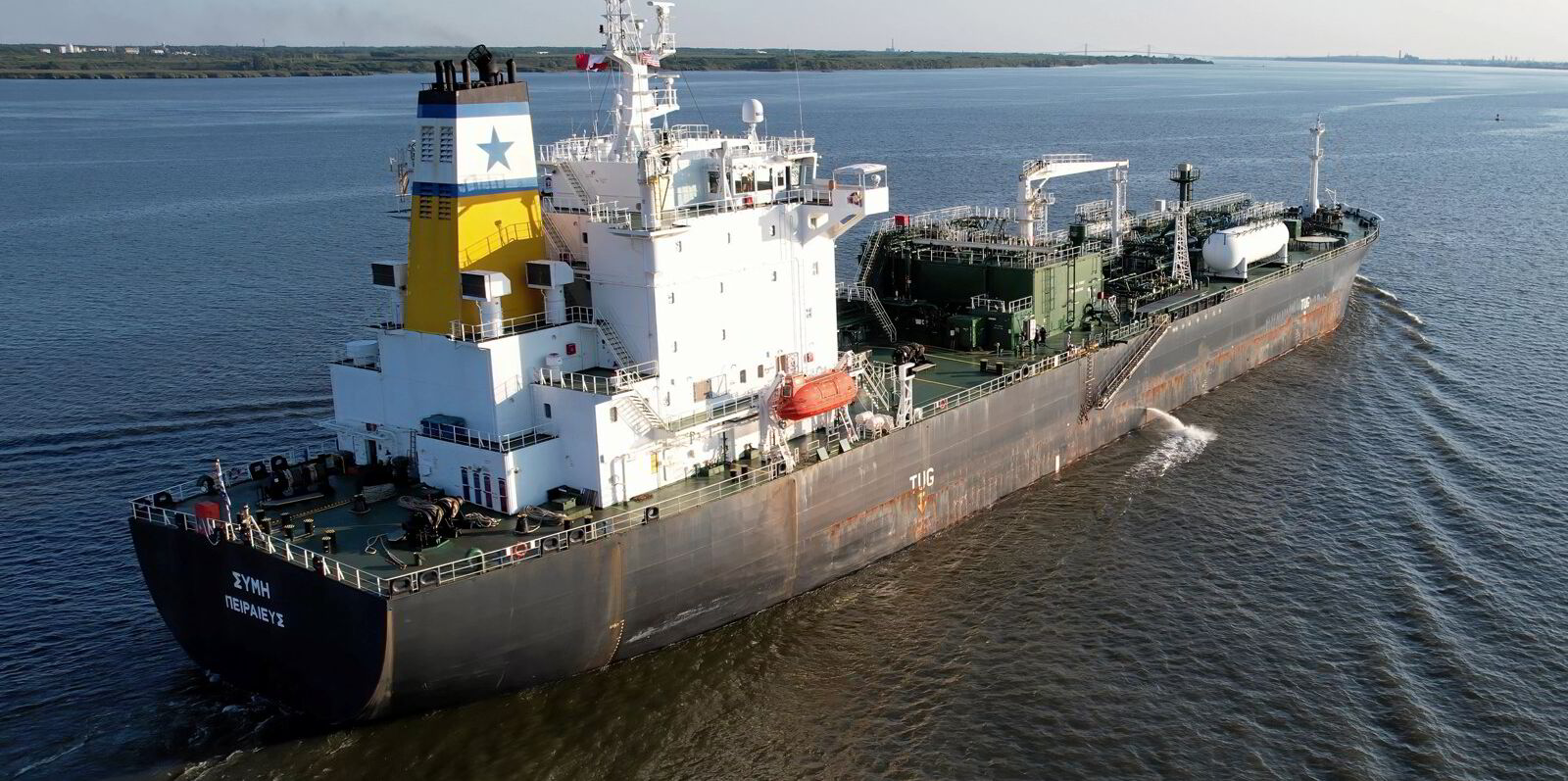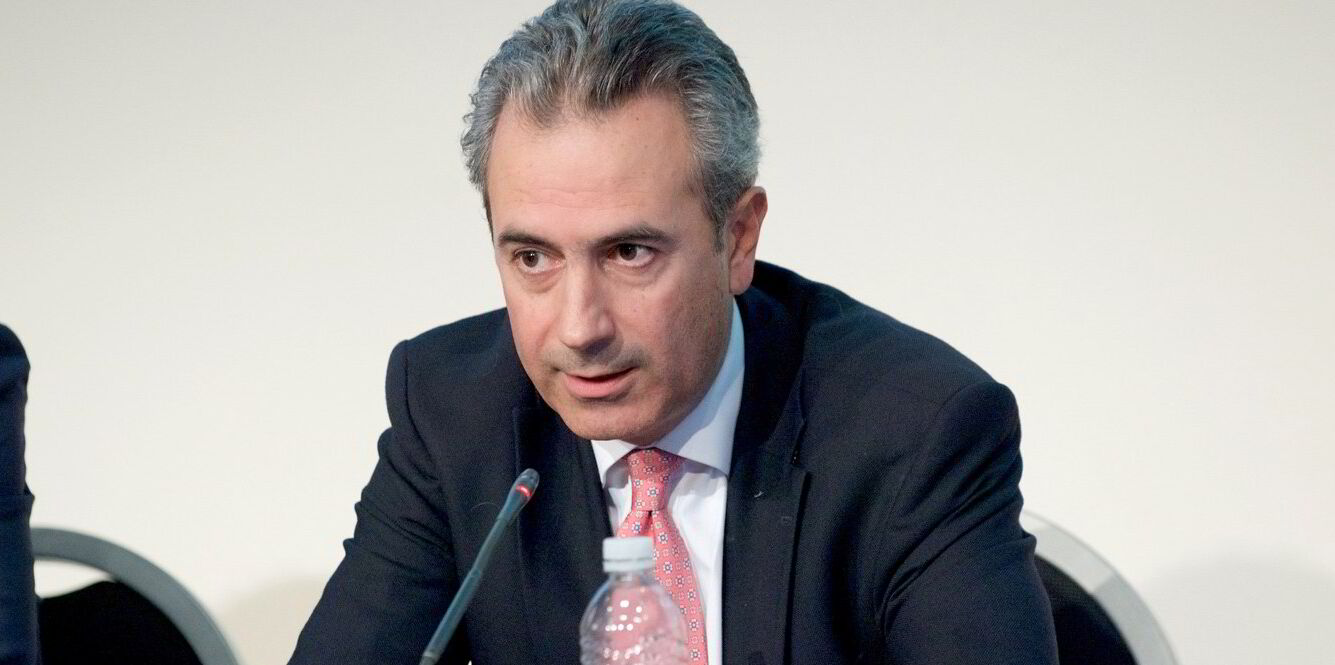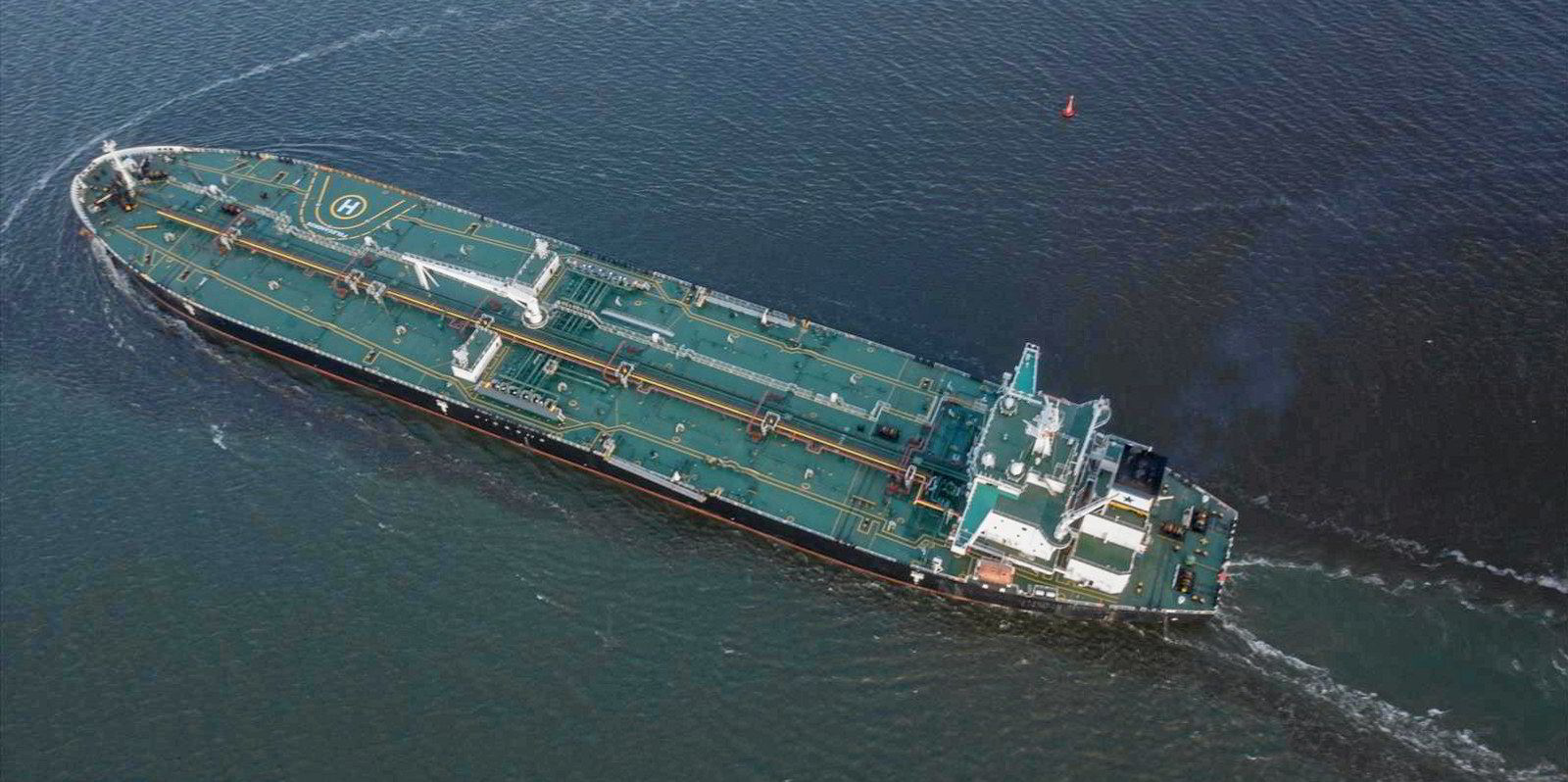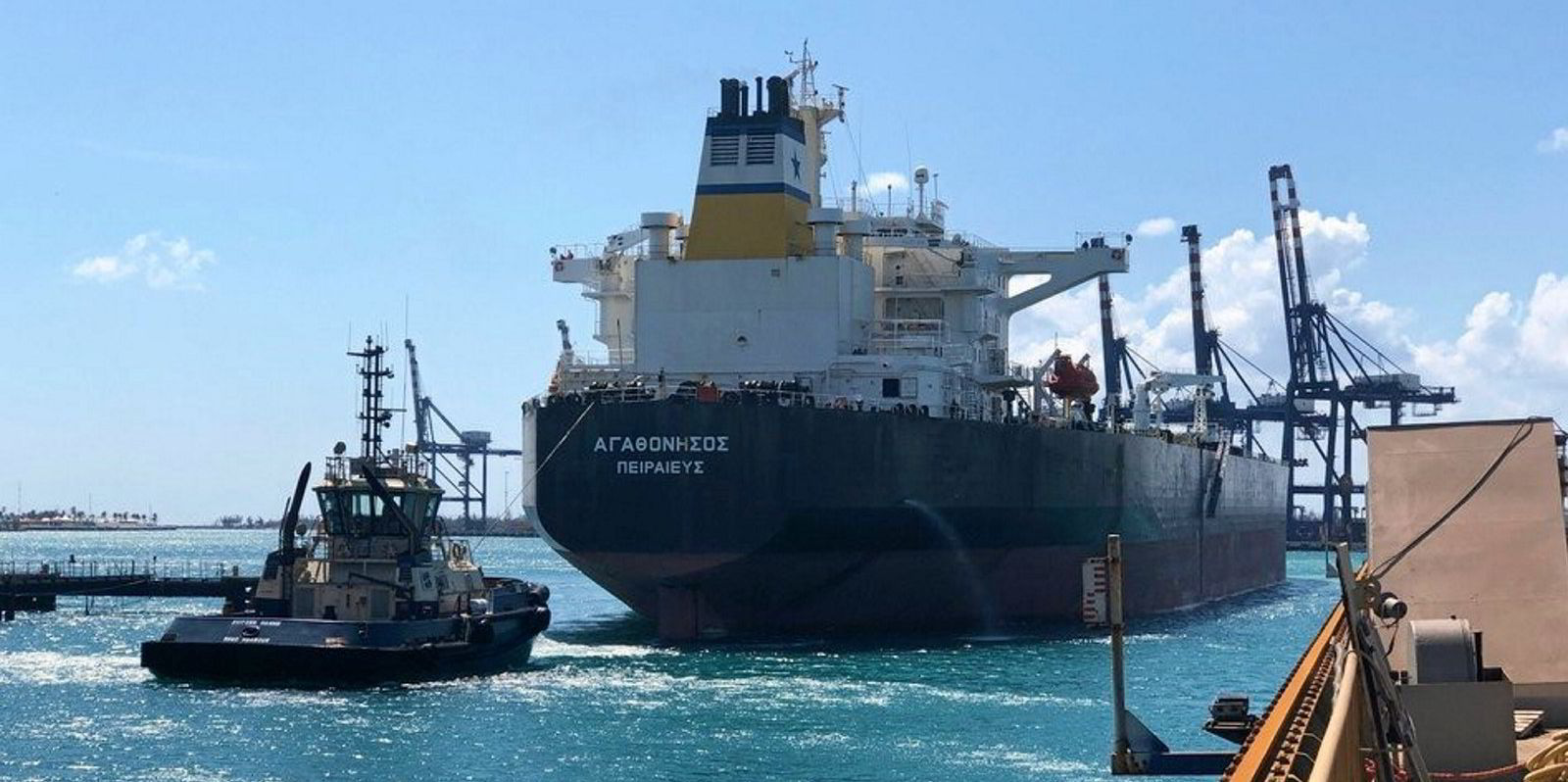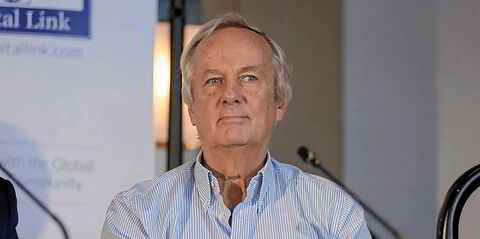A battle for control of Greece’s Eletson Holdings that burst into public view in the past weeks has been raging in the background for more than two years.
Managers at Eletson, a famous private Greek shipowning name, have been at loggerheads with a Canadian hedge fund for control of the company, legal documents reveal.
The dispute, sparked in 2022, spans courts and arbitration hearings in the US and Greece.
It involves claims that the hedge fund tried to sell a fleet of ships to a competitor and accusations that Eletson had been mismanaged and held back information during the process.
Duelling press releases issued last week brought a very public face to a legal battle that has been waged behind the scenes. One judge has branded it “hotly contested” and Eletson’s legal representatives have categorised it as an “incredibly acrimonious case”.
The saga has featured judicial and arbitrator commentary, citing allegations of fraud by Eletson and claims of bribery by the financiers.
Eletson accused Levona — an affiliate of Toronto-based hedge fund Murchinson — of bribing its former chief financial officer Peter Kanelos. A federal arbitrator agreed in his findings, using the term “bribe” seven times in his 29 September 2023 arbitration ruling.
Levona and another firm, Pach Shemen, are special-purpose entities created by Murchinson for the Eletson transactions and are essentially the same business under the same control, the arbitrator found.
Meanwhile, US district judge Lewis Liman suggested there were indications of fraud on the part of Eletson in withholding four key documents from the arbitration discovery process and has allowed further investigation into the matter.
The struggle tipped at one point in Eletson’s direction with a favourable ruling from the New York-based arbitrator, who awarded $87m in damages against the Murchinson companies, including $43m in punitive damages.
But in recent weeks, the momentum has shifted in favour of the Canadian alternative financing firm.
Liman’s order in the Southern District of New York on 6 September found problems with the arbitration award that weighed against confirming it and gave Murchinson/Levona leave to reopen the matter.
Liman adopted in his ruling Levona’s allegations that Eletson had fraudulently withheld key documents and that CEO Vassilis Kertsikoff had lied about them during the arbitration.
Eletson denied the Murchinson allegations when contacted by TradeWinds but would make no further comment.
To note, Liman was required to read the fraud allegations in a manner that favoured Levona, and a final court ruling will depend on further discovery now ongoing.
The court granted Levona discovery to determine if the award “was procured by fraud or undue means”. That process continues under a schedule in which discovery would conclude in the first two months of 2025, filings indicate.
A federal bankruptcy court in New York on 25 Octoberallowed Eletson to move out of Chapter 11 reorganisation under a financial plan backstopped by Pach Shemen. That ruling is now under appeal.
US bankruptcy judge John Mastando ruled the Murchinson-backed plan was confirmable and Eletson’s was not. The financier’s plan offered the highest return to creditors and received the most votes, he found.
A further twist came on 21 November, when Eletson’s incumbent management claimed control of the company and said it was pursuing further court proceedings in Greece, pending a February hearing.
While no filings are publicly available from that case under Greek procedures, thousands of pages have piled up in the US courts over the past two years.
The narrative that follows is pieced together from those filings.

Eletson was founded in 1966 by Vassilis G Hadjieleftheriadis with his two sons and two sons-in-law.
It bought its first tanker in 1969 and was the first to place high-yield shipping bonds in the US in the early 1990s.
Today, it has four owned product tankers and is the operator of some more. It also has LPG interests via Eletson Gas.
The fighting began in the first half of 2022, not long after interests connected with Murchinson stepped in with funding that would help Eletson avoid the auction sale of several tankers that had been arrested by creditors.
Eletson would claim elsewhere in filings that Murchinson conspired behind the scenes to bring about those vessel arrests.
Murchinson bought into Eletson Gas in 2021, taking the position previously held for eight years by financial giant Blackstone.
Levona supplied Eletson with $10m in working capital, with two Eletson ships pledged as security. Levona later provided a further $4m.
Eletson and Levona on 22 February 2022 agreed to an ownership structure under which Eletson retained possession of common shares, while Levona took over the preferred interests.
While the preferred stake was controlling, Eletson had rights to buy it back from Levona within a 30-day period.
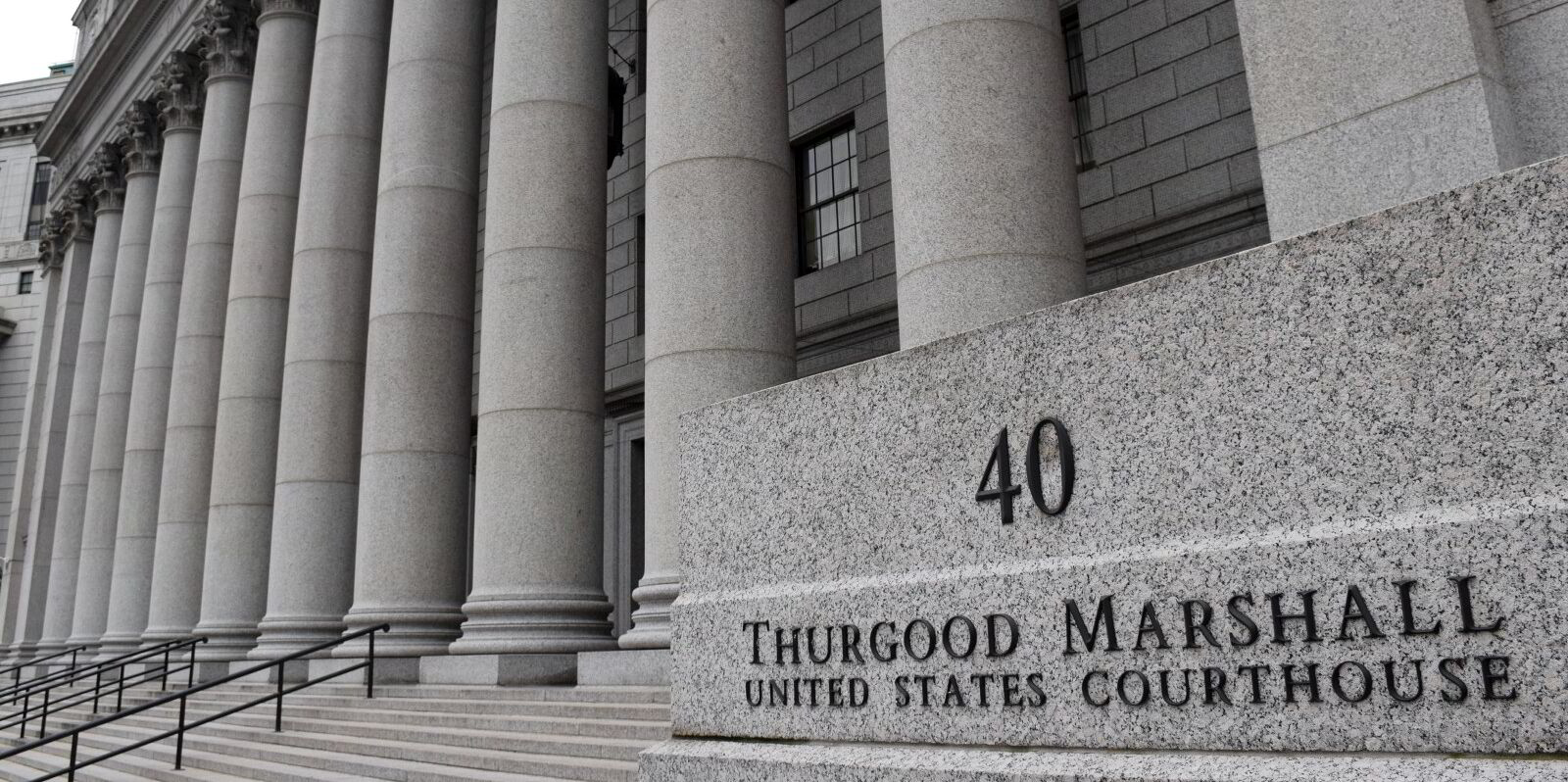
Trouble began when Levona signed a non-binding letter of intent to sell nine of Eletson’s 12 tankers to its chief competitor, Unigas.
Eletson management objected, claiming that Levona lacked legal authority to do so. Eletson filed for arbitration on 29 July 2022.
Levona’s response on 19 August claimed Eletson had mismanaged the company and interfered with its rightful authority to sell two ships.
Central to the arbitration case was whether Eletson had actually exercised its option to buy back the preferred interests.
Eletson claimed it had on 11 March by executing documents to sell its interest in the two ships used as security — the 35,000-cbm LPG carriers Symi (built 2012) and Telendos (built 2010) — to Levona.
New York-based arbitrator Ariel Belen found in favour of Eletson and awarded compensatory and punitive damages against Levona.
However, Liman’s 6 September ruling suggests that Belen might have reached a different decision had he been given access to four key documents that Eletson withheld during the discovery proceedings.
The papers demonstrated that Eletson had not exercised the purchase option on the preferred shares. The documents also were improperly shielded by the Greek company, the judge wrote.
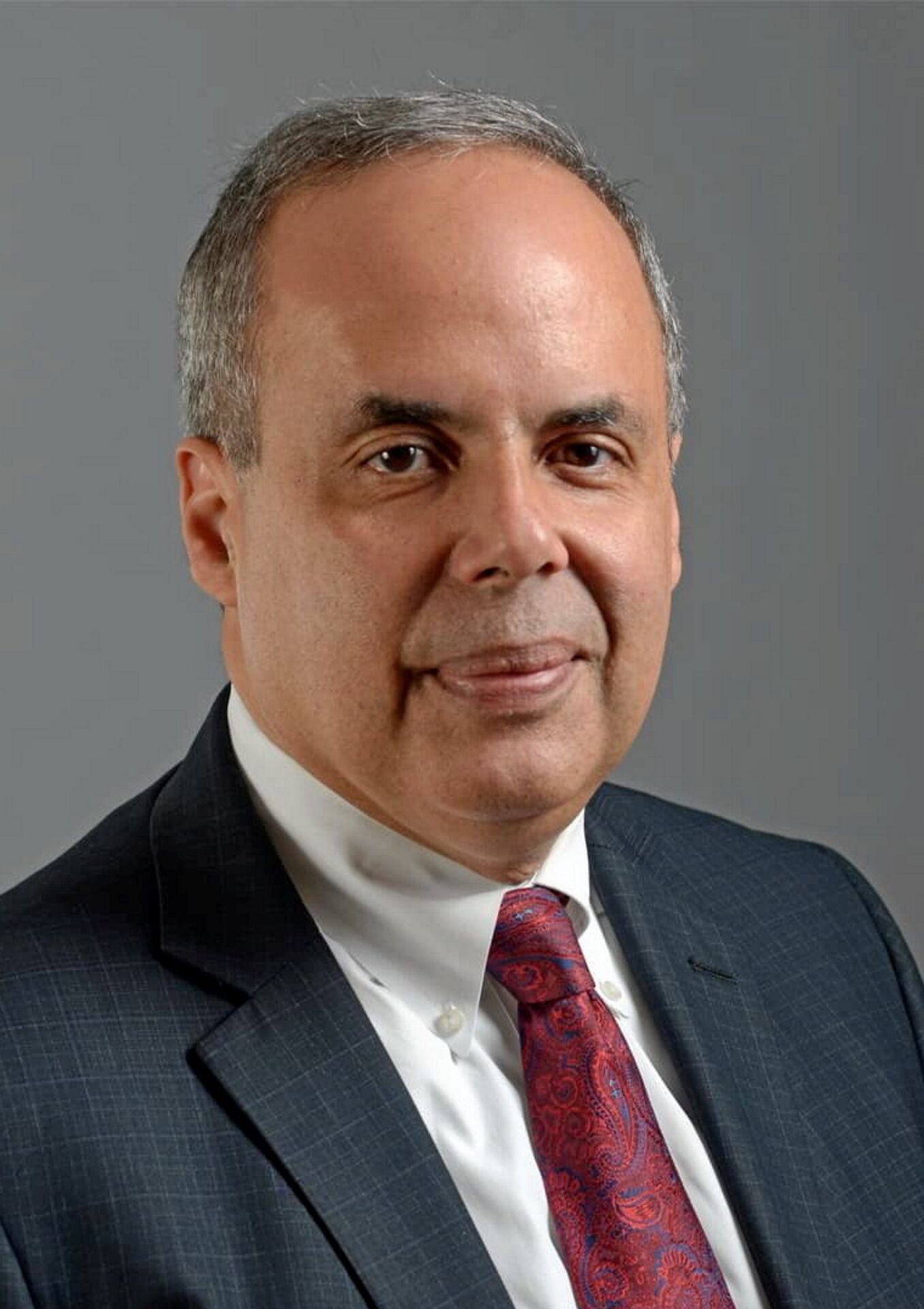
“The newly produced documents put the lie to Eletson’s suggestion that these documents would be irrelevant,” Liman wrote.
“The documents are highly relevant both to the arbitration and to the proceedings before this court. They tend to show fraud in the arbitration proceeding. As it turns out, Levona was not just blustering.”
Indeed, the documents show that Eletson was still attempting to secure funds to buy out Murchinson months after the supposed March conclusion of the transaction, he noted.
“According to the documents which Eletson was compelled to produce during the bankruptcy proceeding, the story told by Eletson to the arbitrator was untrue,” Liman wrote.
“As late as August 2022, after Eletson had filed the arbitration, Eletson was trying to raise funds in order to purchase the preferred interests and was contemplating that it would have to pay more for those interests than contemplated under the purchase option.”
Liman added: “It is easy to imagine that an arbitrator, confronted with these documents, would have reached a contrary decision to that reached by the arbitrator here and would have ruled for Levona on its counterclaims rather than for Eletson on its claims.”
Belen’s arbitration decision also makes findings supporting Eletson’s allegations that Levona bribed Kanelos to serve its interests — and that this collusion began even before Murchinson’s interests had bought out Blackstone’s stake.
The arbitrator’s ruling cites evidence of a $100,000 wire transfer from Murchinson to Kanelos’ bank account, and repeated email correspondence from Murchinson representatives to Kanelos’ private Gmail address.
The Murchinson representatives identified as engaging in the communications include Adam Spears, who has been designated Eletson’s new CEO, according to last week’s press release.
The ruling does not identify Kanelos by name, referring only to an officer of Eletson.
However, he is identified by name in Liman’s later ruling and other court documents.
Kanelos was Eletson’s CFO from 2007 until December 2022, according to his LinkedIn profile. He is currently identified as an independent business consultant.
Kanelos declined to comment when contacted by TradeWinds.
Levona denied any wrongdoing in an email statement to TradeWinds.
“Levona never acted improperly in its dealing with Eletson, and any suggestions to the contrary are absurd and libellous,” the company said in the message.
“We engaged with Mr Kanelos at the suggestion of Blackstone, and our agreement was reviewed and approved by experienced outside counsel. It was entirely proper for Mr Kanelos to assist Levona.”
Levona and Blackstone were the only parties “with a true economic interest in the future of Eletson”, Levona wrote, and it was expressly represented in Kanelos’ contract “that he was allowed to do so”.
Judge Liman’s findings against the arbitrator’s awards, combined with the Eletson fraud review, “demonstrates what we have said throughout this matter: the award has no credibility”, Levona asserted.
Arbitrator Belen was harshly critical of conduct by the Murchinson entities throughout their relationship with Eletson in assessing $43m in punitive damages.
“If there was a case warranting punitive damages, I believe this is one,” Belen wrote in the decision that Liman later called into question.
“The evidence establishes that Murchinson, on its own, and through Levona and Pach Shemen, has engaged in an intentionally hostile, corrupt, wanton and deceitful campaign to the great detriment of the Company [Eletson].
“Murchinson corrupted and bribed an Eletson officer. The deceit continued with the intentional breach of the [non-disclosure agreement] with Blackstone … the record is replete with instances of Murchinson’s agents engaging in deceitful and malicious behaviour to further their own agenda.”
Gary Dixon and Eric Martin
contributed to this article.
